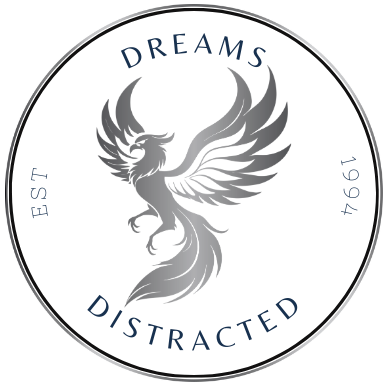Mastering Novel Writing with Anxiety and ADHD: Practical Tips and Strategies
Writing a novel is a monumental task for anyone, but when you’re grappling with anxiety and ADHD, it can feel almost impossible. If you’ve ever stared at a blank page, paralyzed by the whirlwind of thoughts and emotions, you’re not alone. Many writers face these unique challenges, but the good news is, there are ways to manage them and achieve your literary dreams. Whether it’s finding the right mental health strategies or adapting your writing process to suit your needs, this post will guide you through the hurdles and help you turn your ideas into a finished novel. Let’s show the world that neither anxiety nor ADHD can keep your creativity at bay.
Understanding Anxiety and ADHD
Writing a novel with anxiety and ADHD can be particularly challenging, but understanding these conditions is the first step to overcoming the obstacles they present. Let’s explore how anxiety and ADHD can affect your writing process.
What is Anxiety?
Anxiety is a feeling of worry or fear that can be mild or severe. It’s a natural response to stress, but for some, it becomes overwhelming and persistent. Symptoms of anxiety include:
- Excessive worry
- Restlessness
- Fatigue
- Difficulty concentrating
- Irritability
Anxiety can make it difficult to focus on your writing. You might find yourself second-guessing every word or feeling paralyzed by the fear of not being good enough. This constant state of worry can drain your creativity and productivity, making it hard to get any writing done.
 Photo by Andrea Piacquadio
Photo by Andrea Piacquadio
What is ADHD?
ADHD, or Attention-Deficit/Hyperactivity Disorder, affects your ability to concentrate and complete tasks. Symptoms of ADHD include:
- Inattention
- Hyperactivity
- Impulsivity
- Poor organization
- Difficulty following through on tasks
When you have ADHD, your thoughts might feel like they’re constantly racing, jumping from one idea to another without ever settling down. This can make it tough to focus on writing for extended periods, leading to unfinished projects and frustration.
The Intersection of Anxiety and ADHD
Anxiety and ADHD often co-occur, amplifying each other’s effects. The constant worry from anxiety can make it even harder to focus, while the inattentiveness from ADHD can increase anxiety about getting things done. This combination can make the writing process particularly daunting.
Here are some ways the intersection of anxiety and ADHD can challenge your writing:
- Procrastination: The fear of failure (anxiety) and the difficulty in focusing (ADHD) can lead to putting off writing tasks altogether.
- Inconsistent Output: Some days you might write a lot, and other days, you can’t seem to write anything. This inconsistency can be discouraging.
- Perfectionism: Anxiety can drive you to perfectionism, making you endlessly tweak your work instead of progressing.
- Overwhelm: Managing deadlines and the sheer volume of work required can feel overwhelming when both anxiety and ADHD are at play.
Understanding these conditions and their interplay is crucial. Acknowledging the challenges is the first step towards finding effective strategies to manage them, ensuring you can still produce your best work and complete your novel.
For more information, you can read more about anxiety disorders and ADHD from reputable mental health resources.
Strategies for Managing Anxiety While Writing
Facing anxiety while writing can be an uphill battle, but with the right strategies, it’s possible to channel your anxiety in a way that enhances your creativity and productivity. Let’s explore some effective techniques to manage anxiety during your writing journey.
Mindfulness and Meditation
Mindfulness and meditation can be powerful tools to calm anxiety and improve focus. By training your mind to concentrate on the present moment, you can reduce stress and enhance your ability to write.
- Breathing exercises: Simple breathing exercises can help calm your mind. Take deep breaths, hold for a few seconds, and then slowly exhale. Repeat this process until you feel more relaxed.
- Guided meditations: There are numerous apps like Headspace and Calm that offer guided meditations specifically designed to reduce anxiety.
- Mindfulness practices: Practicing mindfulness involves paying attention to your thoughts and feelings without judgment. This practice helps in recognizing anxious thoughts and letting them pass without affecting your writing process.
 Photo by Ivan Samkov
Photo by Ivan Samkov
Creating a Comfortable Writing Environment
The space where you write can significantly impact your anxiety levels. Creating a comfortable and calming environment can help you feel more relaxed and focused.
- Choose a quiet spot: Find a place where distractions are minimal. A quiet room or a cozy corner can make a big difference.
- Personalize your space: Surround yourself with things that make you happy or calm you down. This could be photos, plants, or your favorite books.
- Keep it organized: A clutter-free space can reduce feelings of overwhelm. Keeping your desk tidy and organized can help clear your mind.
- Comfortable furniture: Ensure your chair and desk are comfortable. Physical discomfort can add to anxiety, so invest in a good chair and proper lighting.
Setting Realistic Goals
Setting achievable writing goals is crucial for maintaining motivation and reducing anxiety. Unrealistic expectations can lead to stress and burnout, whereas attainable goals can provide a sense of accomplishment and momentum.
- Break it down: Instead of aiming to write an entire chapter, set smaller goals like writing 500 words a day. This makes the task more manageable.
- Use a planner: Keeping a writing schedule can help you stay on track. Plan your writing sessions and stick to them as much as possible.
- Celebrate small wins: Acknowledge your progress, no matter how small. Celebrating each milestone can boost your confidence and reduce anxiety.
Using Writing as a Form of Therapy
Writing itself can be a therapeutic exercise, helping you process feelings of anxiety and gain control over your thoughts.
- Journaling: Take some time to write about your feelings and experiences. Journaling can be a great way to release pent-up emotions and gain insight into your anxiety triggers.
- Expressive writing: Don’t worry about grammar or structure. Just let your thoughts flow onto the page. This type of writing can be a great emotional release.
- Writing exercises: Practice writing exercises that focus on your anxieties. For example, write a letter to your anxiety, personifying it, and then write a response to that letter. This can provide a new perspective on your fears.
By integrating these strategies into your writing routine, you can manage anxiety more effectively and create a more productive and enjoyable writing experience.
Techniques for Managing ADHD While Writing
Managing ADHD while writing a novel can be challenging, but there are techniques that can help you stay focused and productive. Whether it’s breaking tasks down into smaller steps, using helpful tools and apps, setting a routine, or eliminating distractions, these techniques can make a significant difference in your writing process.
Breaking Tasks into Smaller Steps
When faced with the daunting task of writing a novel, breaking it down into manageable chunks can prevent feeling overwhelmed. This approach helps in maintaining focus and making progress without the stress of tackling the entire project at once.
- Outline Your Novel: Start with a broad outline. Break your story into chapters and then divide each chapter into scenes. This way, you have a clear roadmap to follow.
- Set Daily Goals: Instead of focusing on how much you need to write in total, set small daily or weekly writing goals. For instance, aim to write 200 words a day.
- Prioritize Tasks: Identify which sections need your immediate attention and focus on those first. This helps in staying organized and reduces the feeling of being overwhelmed.
Using Tools and Apps
There are several tools and apps designed to help with organization, time management, and focus, making them ideal for writers with ADHD. Here are some recommendations:
- Trello: Trello helps you manage tasks using boards, lists, and cards. It’s a great way to visually organize your novel’s outline and keep track of your progress.
- Pomodoro Timer: The Pomodoro Technique involves working for 25 minutes and then taking a 5-minute break. This can help improve focus and productivity.
- Evernote: Use Evernote to collect all your notes, ideas, and research in one place. It’s particularly helpful for writers who have multiple ideas bouncing around.
- Focus@Will: This music app is designed to improve concentration and focus, which can be beneficial during writing sessions.
 Photo by Ketut Subiyanto
Photo by Ketut Subiyanto
Setting a Routine and Sticking to It
Consistency is key when managing ADHD. Setting a regular writing routine can help create structure and reduce the chaos that ADHD can bring.
- Create a Schedule: Determine what time of day you are most productive and dedicate that time to writing. Whether it’s early in the morning or late at night, stick to this schedule every day.
- Use Alarms and Reminders: Set alarms or use calendar reminders to keep track of your writing sessions. This helps ensure you stick to your routine.
- Include Breaks: Don’t forget to schedule short breaks. Breaks are essential to prevent burnout and maintain focus.
Eliminating Distractions
Minimizing distractions in your writing environment can significantly improve focus. Here are some strategies to create a distraction-free zone:
- Choose a Dedicated Writing Space: Find a spot where you feel comfortable and can write without interruptions. Avoid common areas where family members or roommates frequently pass by.
- Limit Technology Use: Turn off notifications on your phone and computer. Only use applications that are essential for your writing.
- Set Boundaries: Inform those around you about your writing schedule and ask them to respect your time and space. This reduces interruptions.
Managing ADHD while writing a novel might seem difficult, but with the right strategies and tools, it’s entirely possible. Breaking tasks into smaller steps, using organizational tools, sticking to a routine, and eliminating distractions are effective techniques to aid in your writing journey.

